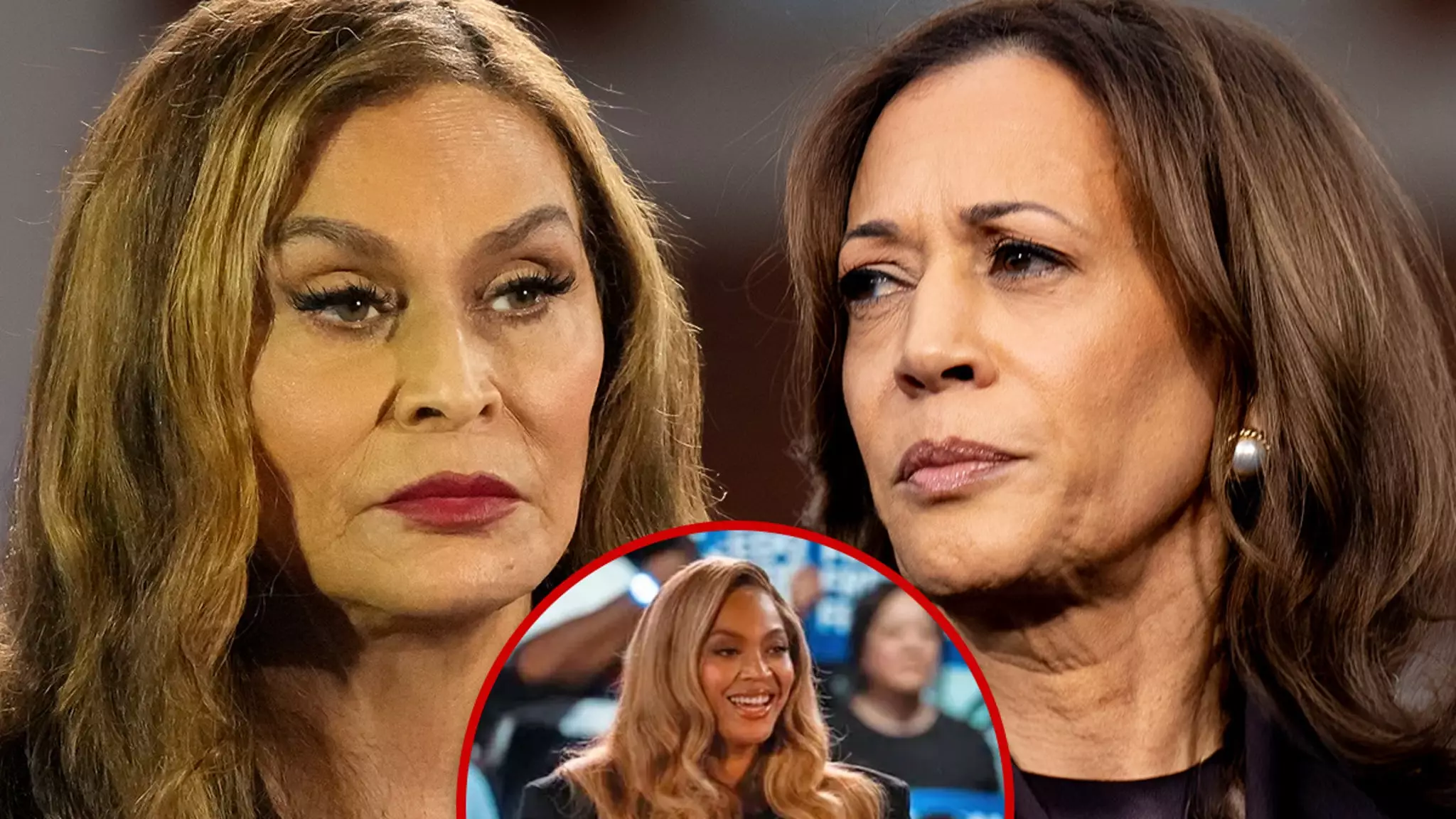In a climate where misinformation spreads like wildfire, it is imperative for public figures to stand up against false narratives. Tina Knowles, the mother of global music icon Beyoncé, has recently found herself in the position of defender-in-chief, vocally responding to deceptive claims about her daughter. Accusations swirled around Beyoncé being allegedly paid millions to support Vice President Kamala Harris during the latter’s campaign, a notion that Knowles vehemently denounced.
Taking to Instagram, Tina Knowles made her stance clear. In a well-articulated post that emphasized the importance of truth in media discourse, she labeled the accusations as “false information.” She highlighted how these unjust claims had even been flagged and removed from Instagram, underscoring the damage that misinformation can convey. With a pointed assertion, Knowles clarified that Beyoncé attended the Houston rally voluntarily and incurred her own travel expenses. This revelation not only dismantled the rumors but starkly contrasted the fabricated claim of her receiving $10 million for her appearance.
The ramifications of such false narratives extend beyond individual reputations; they taint the integrity of notable figures and influence public discourse. By calling out the platforms perpetuating these lies, Tina Knowles stressed the need for accountability in media reporting. Here, one has to ask: What drives the dissemination of such unfounded rumors? In today’s charged political climate, theories and accusations can quickly gain traction, significantly impacting public perception.
The discourse didn’t just stop with Tina Knowles’ post. Fellow artist John Legend echoed her sentiments, reinforcing that Beyoncé, along with other entertainers who supported Harris, did so out of a genuine concern for the nation’s future. This solidarity illustrates a collective commitment to their ideals rather than any transactional relationship with political campaigns. John Legend’s acknowledgment of artists appearing for free draws a powerful contrast to the monetization narratives that seem to overshadow their intentions.
The incident serves as a reminder of the pitfalls of social media: unchecked narratives can spiral into damaging misconceptions, affecting not only individual legacies but the public’s understanding of political engagement. Tina Knowles’ proactive approach in combating misinformation is essential in reclaiming the narrative. As influential figures in society, it is crucial for celebrities to address and dismantle falsehoods, stand firm in their principles, and foster a culture of transparency.
As fans and observers, understanding the truth behind the headlines and being skeptical of sensational claims is critical in this age of information overload. Celebrities like Beyoncé deserve to be celebrated for their support for important causes, unclouded by the fog of misinformation.

